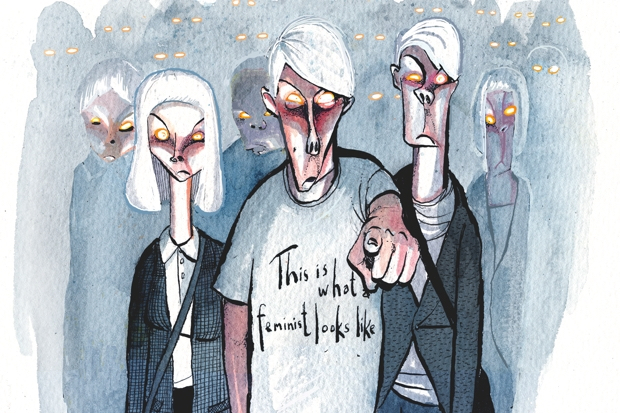For the past few days, I’ve been hoping to receive an email from the two universities in Scotland where I’m enrolled in a joint PhD program. So far, though, I’ve not heard from either of them.
It seems obvious that all of this is creating a climate of fear and stifling academic discourse
Since the war in Gaza broke out, students have received weekly, and sometimes even daily, updates about the conflict. But when it comes to Scotland’s new Hate Crime Act, which came into force last week, there has been virtual radio silence. This is despite there being deep concerns about the impact the Act will have on free speech and academic freedom at universities. Students would at least like to know if they are going to be reported to the police for speaking about their research.
I’m an international student from the US and my research looks in part at the aftermath of the Islamic Revolution and the mandatory veil law in Iran. There could easily be a situation where I end up doing a presentation on campus on these topics. What I don’t know though is whether speaking about them could mean I fall foul of the Hate Crime Act.
The new law targets “insulting” behavior which results in “hatred being stirred up” against a group of people, defined by their “race, color, nationality (including citizenship), or ethnic or national origins.” If someone is disparaging about the Islamic Revolution, could that be classified as insulting or stirring up hatred? Supporters of the Iranian regime would certainly think so, and they would argue that they are defined under the law as a national or ethnic group. Similarly, criticizing the veil could also be seen as targeting a minority group.
So far, academics have been given little clarity about how the Hate Crime Act could affect them. This, in itself, is creating self-censorship and fear.
It wouldn’t be outlandish for university researchers to be targeted by this law. Ahead of the Act coming into force, Police Scotland gave training to its officers which suggested that offenses could take place by email, video, and even during a public performance of a play. If actors and comedians are fair game under the Act, why wouldn’t university lecturers be as well?
At the same time, university students and staff are particularly vulnerable to being accused of stirring up hatred when they discuss sensitive or controversial topics. Student associations wield a disproportionate amount of power on campuses, and they are often dominated by activists who are quick to label any dissenting opinions as hate speech or discriminatory. Only last month, a lecturer at University College London revealed that she had been removed from her teaching course and faced formal complaints after she criticized China in a statistics class. Who knows, if she had taught this class in Scotland, perhaps she would have been reported under the Hate Crime Act as well.
At the moment, the student associations at Scottish universities are mainly concerned with two things: transgender healthcare and Palestine. Any person who dissents from the student view on these subjects will not get a fair hearing, and will now probably be reported to the police if they take a public stand. Universities have become “safe spaces” for these activists, and now they have conquered the rest of society as well.
It seems obvious that all of this is creating a climate of fear and stifling academic discourse.
Recently, I was at a writing retreat. While I was there I spoke to a professor, who asked whether I thought it was acceptable for her to publish a paper on decolonization, given that she is a white woman. She confided that a colleague had told her she shouldn’t publish the paper because she isn’t a person of color.
“What if no one else would write what you’ve written? Are you willing to censor yourself?” I asked. Eventually, I convinced her that not publishing the paper because of her race would be neither productive nor equitable.
The incident highlighted how the new Hate Crime Act could make universities, already obsessed with identity politics, even worse. From now on, academics won’t just have to fear being slated by their colleagues or students if they transgress against the identity politics orthodoxy, they will have to be wary of police prosecution as well. What professor would take on the prevailing academic and activist view on systemic racism, for example, if they could be investigated by the police for stirring up hatred against a minority group? Even if the police decide they won’t proceed with a hate crime allegation, they will likely record it as a “non-crime hate incident” which will stay on that person’s police record and appear on enhanced record checks if they apply for a job in the future.
Freedom of expression is already in danger in UK universities, with many academics too afraid to speak out. Instead, they have been reduced to whispering to one another about what they really think. With this hate crime Act, it seems the Scottish government wants to extinguish those whispers too.


























Leave a Reply